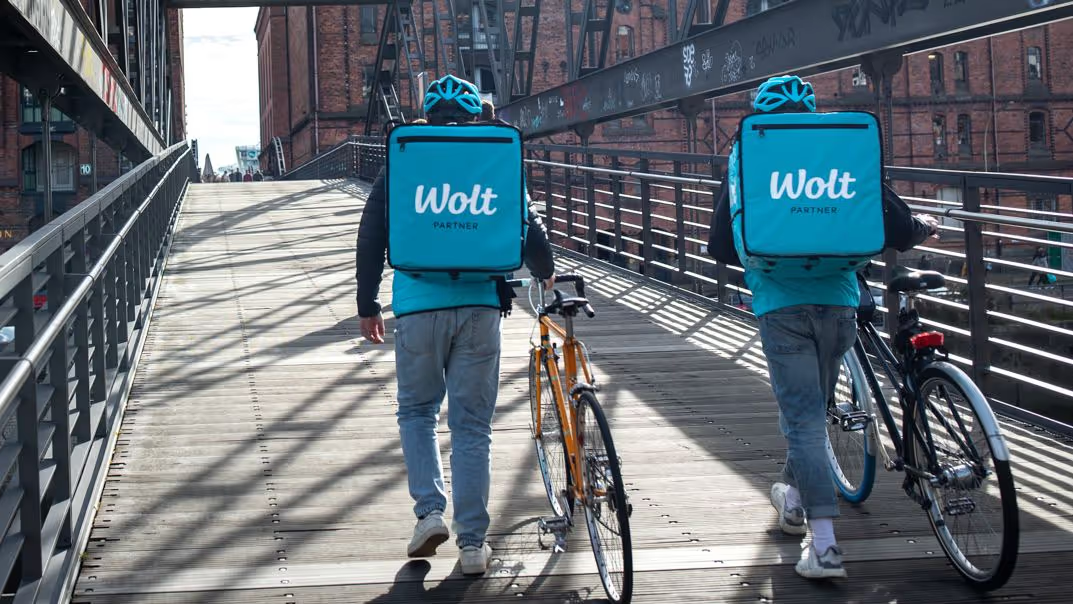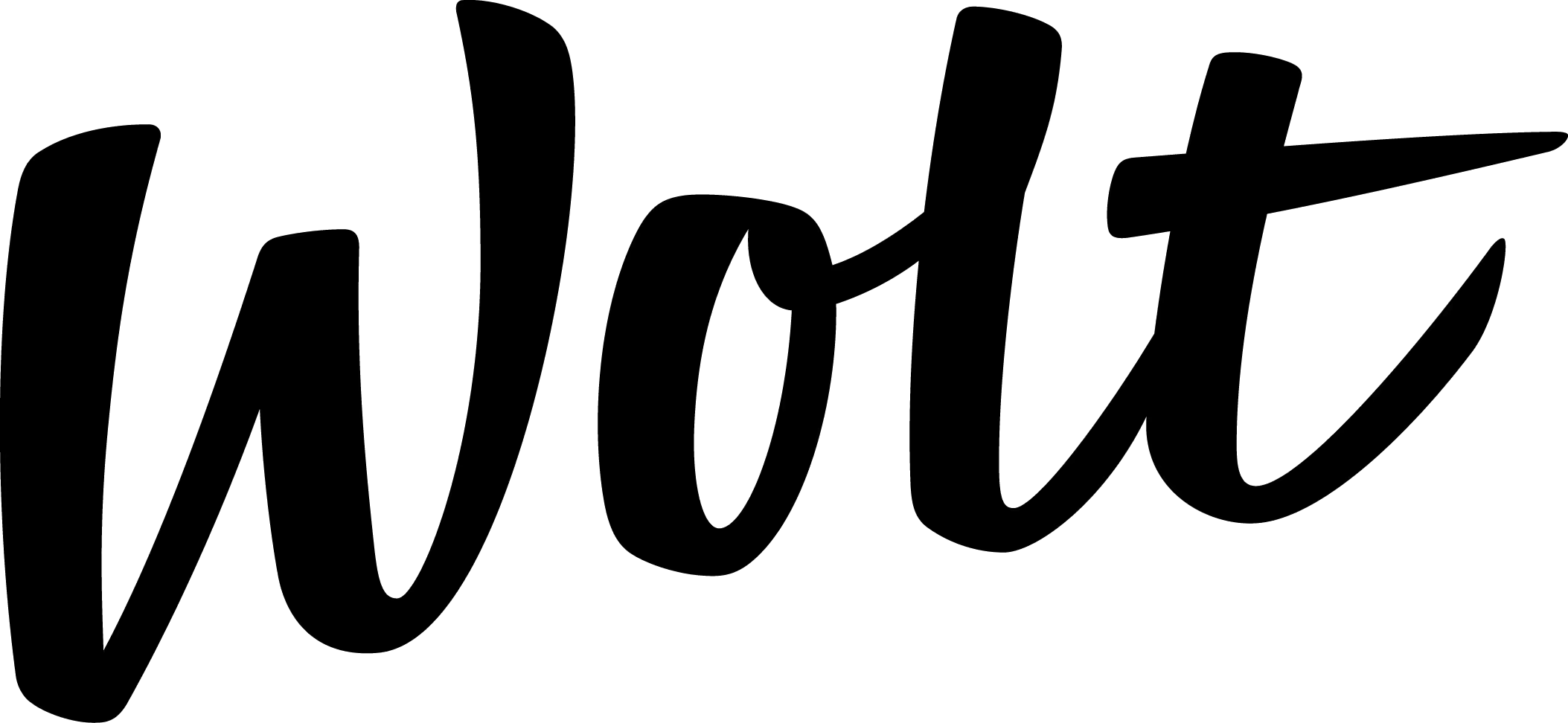Solutions
Customer Support
Resources





“Juro makes it extremely easy to manage contracts”


Forbes, Wired and Apple have all recognised Wolt as one of the most exciting new companies in Europe. Wolt’s app-driven online food delivery service connects more than 7m registered users to over 15,000 restaurants and more than 25,000 couriers, across 23 countries. Wolt was founded in Helsinki in 2014 and was acquired by the largest food delivery company in the US, DoorDash, for $8.1bn in 2021.
Operating across 23 countries with millions of users, thousands of restaurants, and tens of thousands of couriers, Wolt faced increasing complexity in managing contracts. Rapid growth and its acquisition by DoorDash only heightened the need for efficiency and compliance. To keep pace with expansion and ensure smooth collaboration with partners, Wolt required a scalable, repeatable system to manage contracts consistently.
Adding new partner restaurants at speed and scale was crucial to accelerating Wolt’s growth. Wolt has around 40 sales managers (all non-lawyers) handling restaurant partner contracts, with new entrants joining the platform all the time. But clunky legacy systems and repetitive processes around contracts were getting in the way, explains Juho Uitti, the sales and partnerships development manager at Wolt’s Helsinki HQ.
“We wanted to improve the Q&A flow we used to get restaurants on board, and make it easier for our restaurant partners to fill out contracts. We were also looking to easier and faster way to make sure all contract templates are up to date in different markets,” says Juho.
The process in place relied heavily on Word documents. “You always needed to upload a Word document to fill in, which meant you were creating your data input on top of the document, rather than within it. And even if there was nothing to change for a given contract, you still needed to fill it all in each time.”
This meant that managing and personalising contracts as they differed between markets was difficult in Wolt’s previous e-signing tool, which lacked flexibility when it came to modifying templates.
The pain points added up to an unacceptable time cost per contract. “If I looked at the end-to-end process, from the moment of creation, to using the contract, to creating the service for the restaurant; with our previous provider, per contract that took up to 15 minutes,” said Juho.
Wolt needed a contract automation solution that could offer ease of use when it came to managing documents and templates, and a velocity that could keep up with Wolt’s growth ambitions.
Wolt was also interested in choosing a startup provider, so both companies could grow together, scale the partnership and maximise the value of new functionality.
Immediate ROI
In February 2017, Wolt began a small implementation of Juro to replace its legacy workflow (which was a combination of an eSigning tool and Word documents). Wolt started out with two users using Juro to sign up new restaurant partners. Instead of a 15-minute end-to-end contract process, Juho and his team found that they could reduce that time to just five minutes.
Saving more than 60% of time on contracts had a huge impact on the team’s ability to manage new business, helping Wolt scale to more than 3000 restaurant partners. But a faster workflow was just the beginning of the upside of Wolt using Juro - an upside that led it to expand from an initial 2 users, to over 350 by 2021.
Ease of use
To scale contract workflow successfully amongst a user group of non-lawyers requires a solution that’s easy to use, and removes the risk of human error without compromising on legal robustness. Far too many legal software solutions aren’t fully adopted, leaving value on the shelf and never realising the powerful benefits they can bring. Juro’s conversational Q&A flow, intuitive UI and Slack-integrated platform made wide adoption a reality for Juho’s team.
“My biggest reason to recommend Juro would be that it’s easy to use, it makes it extremely easy to manage contracts, and there’s less room for human error if you use it,” says Juho. “With Juro, contracts are much easier to modify; we can also quickly view all of our contracts created for a given country by any users, for example. You can see what they’ve done, you can easily get access to it, and you have the history so you can track what happened with individual contracts, which removes a lot of human error.”
More speed, less friction
Getting restaurant partners to sign quickly was a key requirement, in order to maintain Wolt’s pace of growth. Previous contract systems had required separate verifications that added too many steps to the process and slowed things down, but Juro’s built-in verification and direct sharing links removed friction and sped up the process.
“Signing has worked very well - restaurants don’t ever complain. It’s especially easy because you don’t need separate verification to access the contract. There’s no need to input an email address, verify it, get acceptance, and so on. That’s a problem with some other systems - with Juro documents are faster to fill in. That takes out half the time and the pain of the previous system,” explains Juho.
Wolt began with 2 Juro users in 2017. They expanded to 40 across 10 markets by the end of 2018, and as of 2021, the number of users has skyrocketed to over 350, as Juro is rolled out to new markets. This reflects Wolt’s aggressive growth in the past two years, expanding into new territories in eastern Europe and even Israel.
The robustness and flexibility to deal with different markets, jurisdictions and regulatory environments is key to this success. “It’s a big demand for any system we use,” says Juho: ”It must be scalable, and ready for any legislative requirements further afield. Juro is both.”
